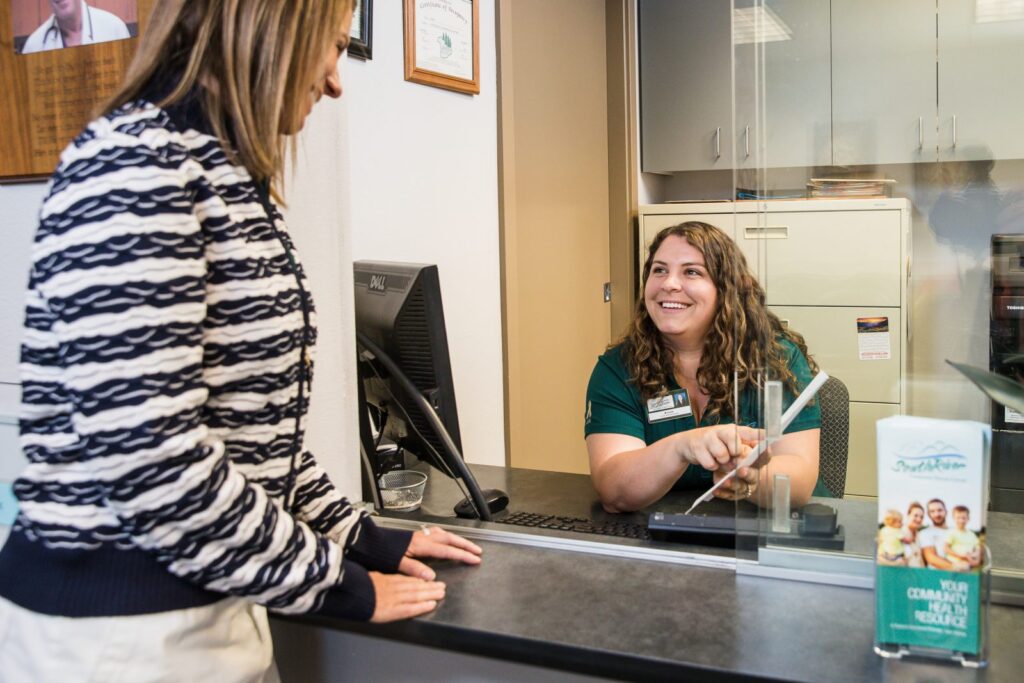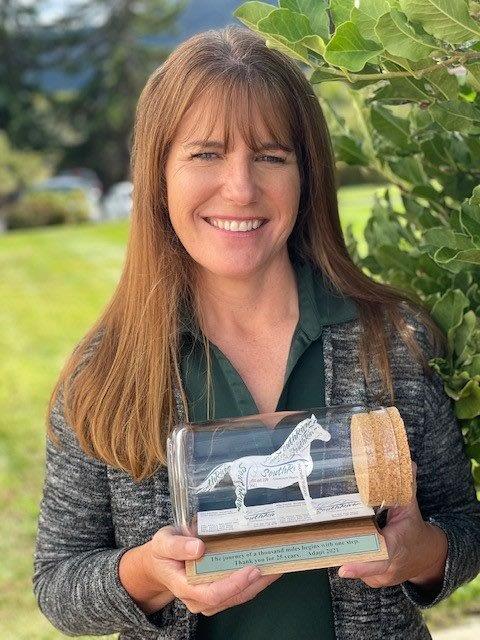By Michelle Watson

Primary care services are a critical step to wellness that is difficult to reach for many people in our rural communities. For a number of Douglas County residents, simple access to basic health care services is a consistent and persistent need that, with the weight of the past two years pressing on health care teams, has only continued to increase. With abrupt changes in care delivery methods, patient anxiety, financial strain, overflow, and many other challenges, primary care providers have continued to work toward the health of our communities.
Part of addressing this need is the “health care safety net” approach. This outlook toward community care focuses on providing opportunities for those encountering barriers to health care, some of which are lack of health insurance coverage, geographic isolation, language differences, mental illness, and homelessness.
To provide that safety net, Douglas County has two Federally Qualified Health Centers (“FQHC”): Adapt Integrated Health Care and our peers at Aviva Health. FQHCs have a mission to provide high-quality care to all our community members, especially those belonging to historically underserved and vulnerable populations who may not be able to access care in other medical settings. By providing high-quality service regardless of ability to pay and with a focus on outreach and care coordination, FQHCs break down the walls between our community members and the health care they need. For instance, one of Adapt’s specific priorities under this umbrella is providing healthcare for unhoused or underhoused individuals, for which Adapt is designated as a “Healthcare for the Homeless” clinic.
Adapt’s history providing these valuable services began in 2006 when our Primary Care division first opened as SouthRiver Medical Clinic with a single provider at a small office in Winston. Over the past 16 years, we have expanded to 11 providers operating from a larger Winston campus and our behavioral health campus in Roseburg.
This expansion has allowed Adapt to continue building on the premise of holistic health for our community members. Adapt acknowledges that health care, especially primary care, is much more than simply finding and treating a medical diagnosis.
As a Patient-Centered Primary Care Home, Adapt helps coordinate care for all patients by screening for other factors that can impact the personal journey to wellness, such as food or housing insecurity, so staff can connect them with resources available in the clinic and in the community to address these needs. For instance, Adapt partners with Thrive Umpqua to offer vouchers for fresh produce to patients with diet-related health risk or condition, food insecurity, or other challenges accessing nutritious foods through the Veggie Rx program. Additionally, providers help co-locate an advocate from the Peace at Home team for patients experiencing domestic violence.
This approach of ensuring care is built on both personal wellness and community integration helps to reduce the costs of health care across the lifespan and improves individual outcomes. Access to services such as behavioral health care, which includes services such as psychiatric care and Medication for Opioid Use Disorder (“MOUD”) treatment, helps promote long-term wellness for our community through a person-centered, whole person care. Within the past year, almost a quarter of Adapt’s primary care patients have received at least one behavioral health service, whether that was a single contact to work on meeting health goals or longer-term therapy to treat a diagnosed mental health condition.
Adapt’s team of primary care providers and staff consistently approach this work from a lens of community-focused effectiveness. For the work done to bridge the gaps and remove the barriers on the road to care, Adapt has received consistent Quality Awards from the Health Resources and Services Administration (“HRSA”) with an emphasis on advancing our health information technology to better serve patients. Each year, our teams work diligently with our community’s local CCO, the Umpqua Health Alliance (“UHA”), to meet the State of Oregon’s quality metrics to continue providing excellent patient care.

It is the hope of Adapt that, through this article, you have gained a better understanding of the many opportunities available to help you or a loved one through the journey to better health.
Visit www.adaptoregon.org to learn more about other programs and services available in your location. If you or someone you know needs primary care, substance use treatment, or mental health care, call 541-672-2691 or the 24/7 Mental Health Crisis Line 1-800-866-9780.